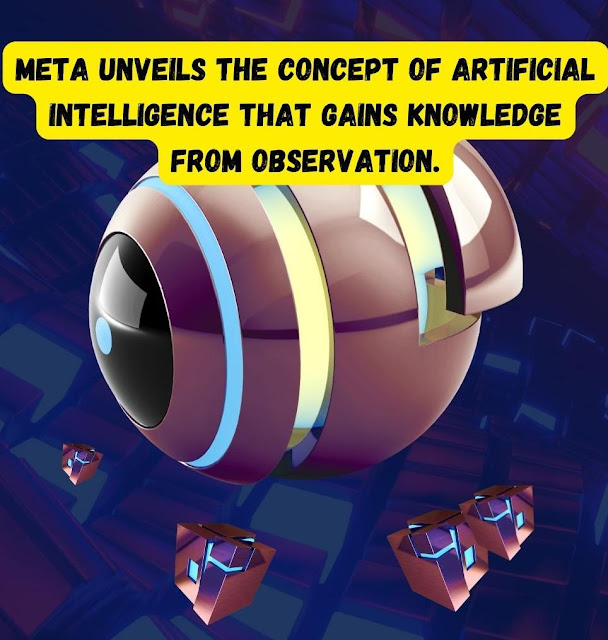Meta unveils the concept of artificial intelligence that gains knowledge from observation.
V-JEPA, a new artificial intelligence model from Meta, enhances machines' comprehension of the environment by examining how things interact in films.
This model advances the goal of creating machine intelligence that learns similarly to humans, as expressed by Yann LeCun, the company's principal AI scientist and vice president.
In mid-year, Meta released the fifth iteration of the I-JEPA model, which included improvements in comparing abstract representations of images instead of actual pixels and expanding the model to include video clips.
By transitioning to video learning and adding the intricacy of time-dependent temporal dynamics along with spatial information, V-JEPA expands the predictive method to image learning.
Because V-JEPA learns from unlabeled films and does not require human-labeled material to begin learning, it is able to forecast missing portions of videos without having to reconstruct every aspect.
This approach uses less training resources and boosts V-JEPA's efficiency. In comparison to previous models, this one is faster and requires more resources because it learns from a limited amount of data.
Large sections of video recordings were masked off during the model's development process. By forcing V-JEPA to make assumptions based on scant context, this technique helps the system comprehend complicated circumstances without the need for extensive data.
V-JEPA ignores minute details, such the movement of a single leaf on a tree, and instead concentrates on the overall concept of what is happening in the video.
In experiments, V-JEPA outperformed previous video analysis algorithms while only a fraction of the usual amount of data, demonstrating encouraging results.
This effectiveness, which enables the model to be used in a variety of tasks without requiring significant retraining, is viewed as a breakthrough in the field of artificial intelligence.
Meta intends to add audio analysis and enhance V-JEPA's comprehension of lengthy video sequences to its list of future features.
The overarching goal of Meta, which is to develop machine intelligence to accomplish complicated tasks like humans, is supported by this work.
V-JEPA is open source software that can be used and expanded upon by scholars worldwide, thanks to its Creative Commons Non-Commercial License.


Comments
Post a Comment